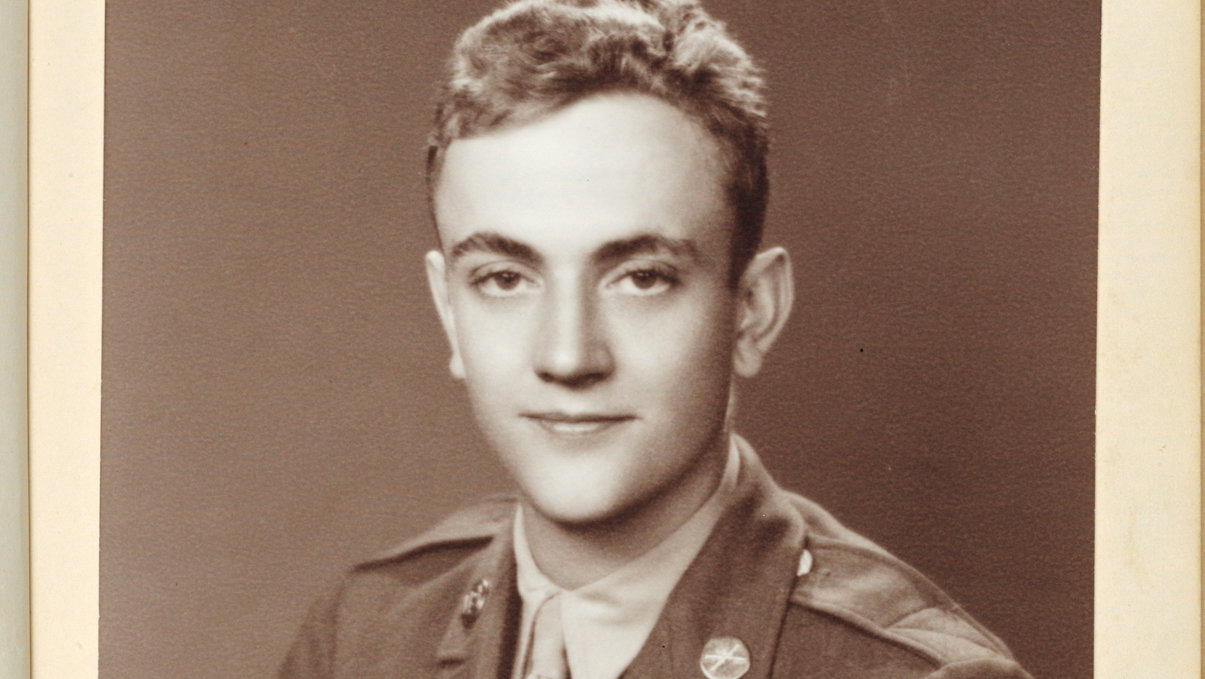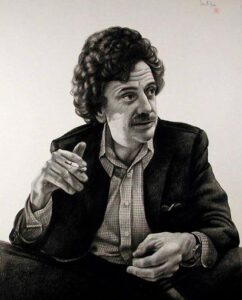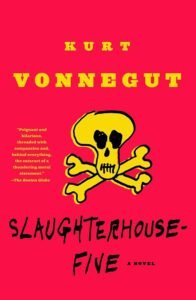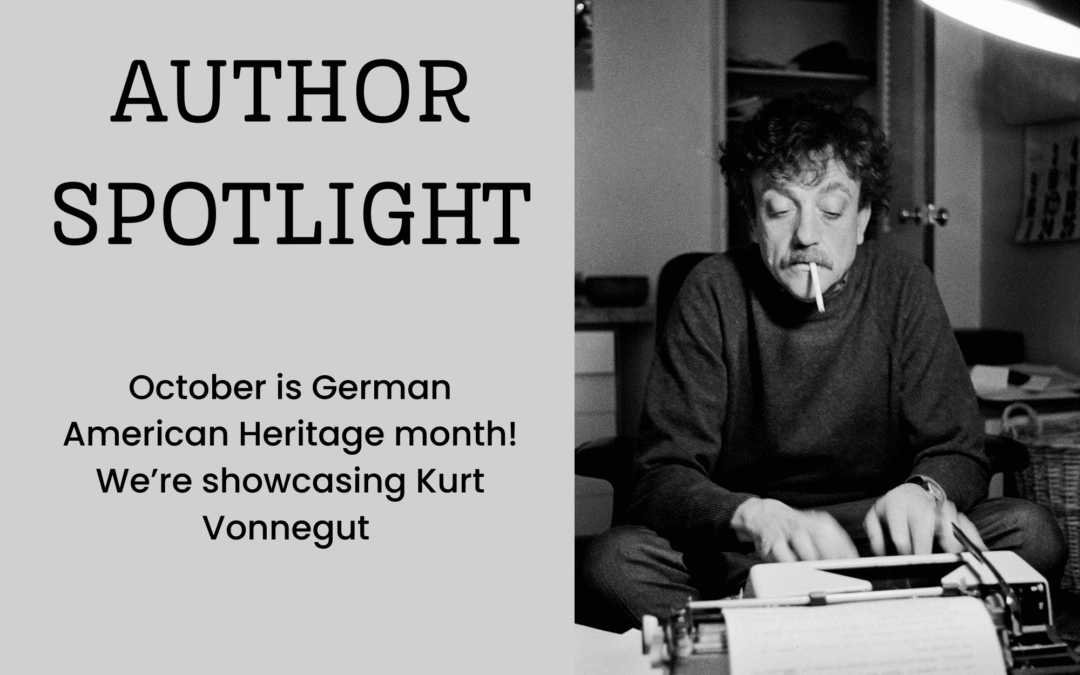Every October is German American Heritage Month! Today’s blog post is all about Kurt Vonnegut Jr. Learn more about him below and we including some must read works!
Kurt Vonnegut Jr. was born in Indianpolis, Indiana on November 11th, 1922 to Edith and Kurt Sr. His father, Kurt Vonnegut Sr was a prominint architect for the city and his mother Edith Lieber was the daughter of a wealthy brewer. Kurt Sr and his partner designed the Athenaeum in Indianapolis, a landmark, which is still used today.. His early childhood was filled of happiness and comfort until 1928 when the Great Depression hit America. The Vonnegut’s thought it was nothing to worry about at first. A short time into the Depression Kurt Sr had to sell his business and the family home. Kurt Jr. was taken out of private school and moved to public school to help save money. His mother Edith soon became an alcoholic, not used to hardships. In his adult life, Kurt Jr. was known to be a pesismist. He blamed his parents for not taking the Great Depression seriously when the stock market crashed.

When Kurt Jr was in high school he joined the newspaper The Echo. He credits this experience with helping him to write for the “masses” instead of writing school assignments. His older brother, Bernard told him to major in a discpline that would give him a stable career instead of trying to become a writer. Kurt enrolled at Cornell University in 1940 and tried to study biochemistry with little luck. At Cornell, he joined the student paper as a writer, and later became an editor after his first year. One of his pieces focused on Pacifism during the start of the Second World War, however, after the attack on Pearl Harbor, Kurt enlisted in the army. Kurt came back to Indiana to visit his family for mother’s day, and found out that his mother had died by suicide.

Three months after his mother’s death, Kurt was sent to Europe apart of the 106th infantry Division and fought in the Battle of the Bulge. However, he was captured quickly by the Germans and was sent to a POW camp in Dresden. In February of 1945, the Allied Troops attakced the city, leveling it to the ground. Kurt and other POWs managed to survive by hiding in a slaughterhouse below the ground. Once the men ermerged from the slaughterhouse, tbey saw the destruction which scarred Kurt for the rest of his life. The American POWs were tasked with finding survivors in the rubble.
“When we came up the city was gone … They burnt the whole damn town down”
Once the POWs met up with General Patton’s command, Kurt was sent back to America where he earned a purple heart. When he returned to Indianapolis, Kurt married a former classmate, Jane Cox. Over the next few years, Kurt got a job with General Electric. During this time, Kurt started to write again. In 1952, he sold his first manuscript, Piano Player. Piano Player, is based on Kurt’s experience at GE where the workers are replaced with machines. In one of the short stories, Kurt expressed his opposition to McCarthy.
His most famous work, Slaughterhouse Five, was published in 1969. Throughout his writings, Kurt often described his time during the War, but never as a whole. In 1967, he was awarded a Guggenheim fellowship for his research, and returned to Germany, particularly the city of Dresden. In Dresden, he still saw the buildings in disarray.
The novel Slaughterhouse Five is about Billy Pilgrim who goes to fight in the war and survives the bombing of Dresden. With it’s famous opening line, “This all happened. more or less” sets the reader on a non linear journey throughout Billy’s life.
After the book was published, he embraced his new fame. Many people attribute Kurt to the anti war movement.

After the widely successful run of Slaughterhouse Five, the 1970s saw Kurt through tough times. He divorced Jane and moved to New York City, and his oldest son Mark had been diagnosed with bipolar disorder. He used the period to work on his black comedic style through the releases of Breakfast of Champions, and Slapstick. Luckily, in the 1980s, he saw a resurgence.
His last work was a collection of stories called, Man Without a Country. In the collection, Kurt writes about his fears for the end of humanity. Several stories talk about corporate greed, over population, and how war would destroy humanity.
“We could have saved the world, but we were too damn lazy”.
Kurt Vonnegut died on April 11th, 2007 after sustaining injuries from a fall at his New York home. He was 84 years old.
Must Read
Slaughter House Five
Cat’s Cradle
Breakfast of Champions
Sirens of Titan


Recent Comments